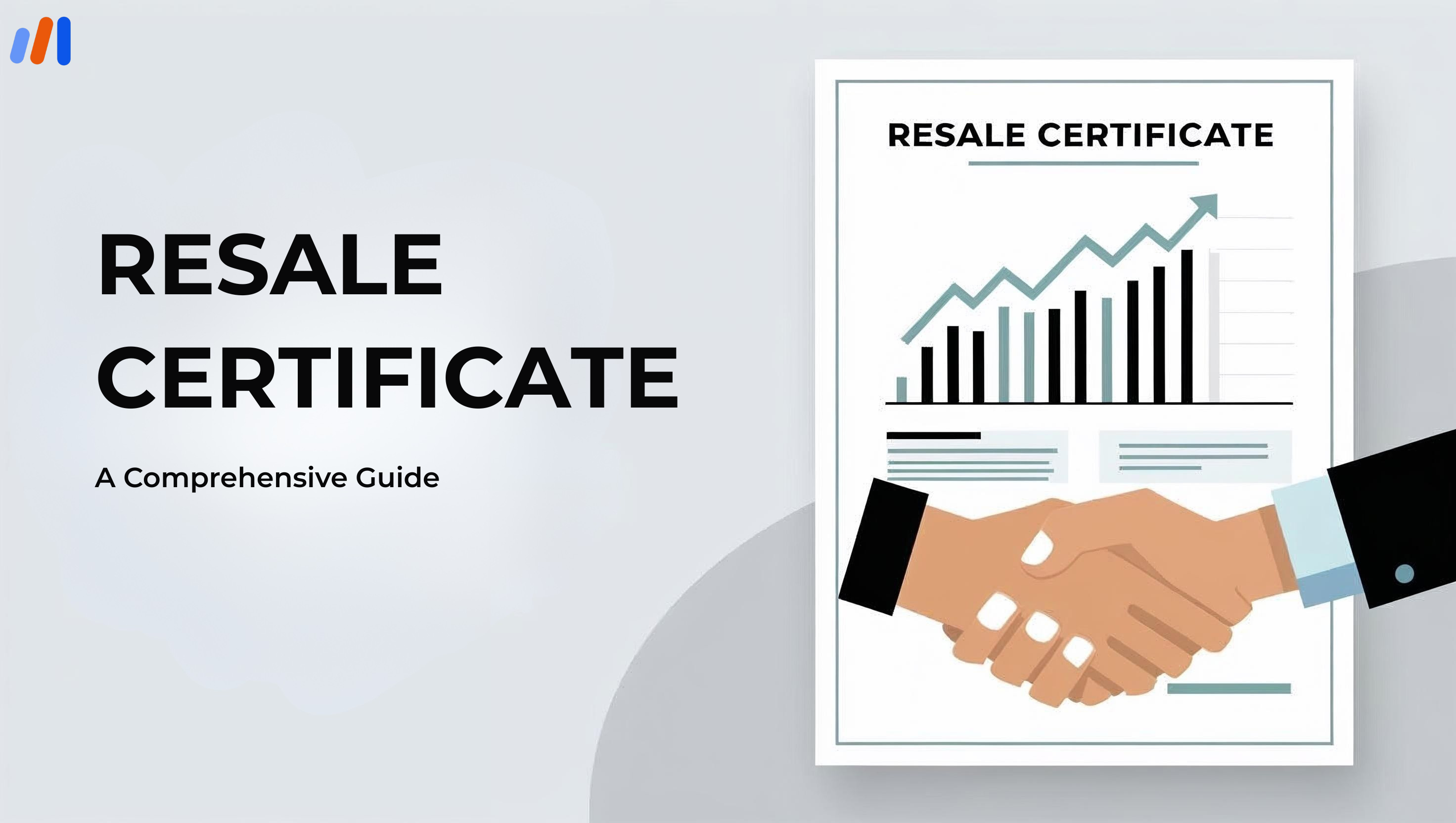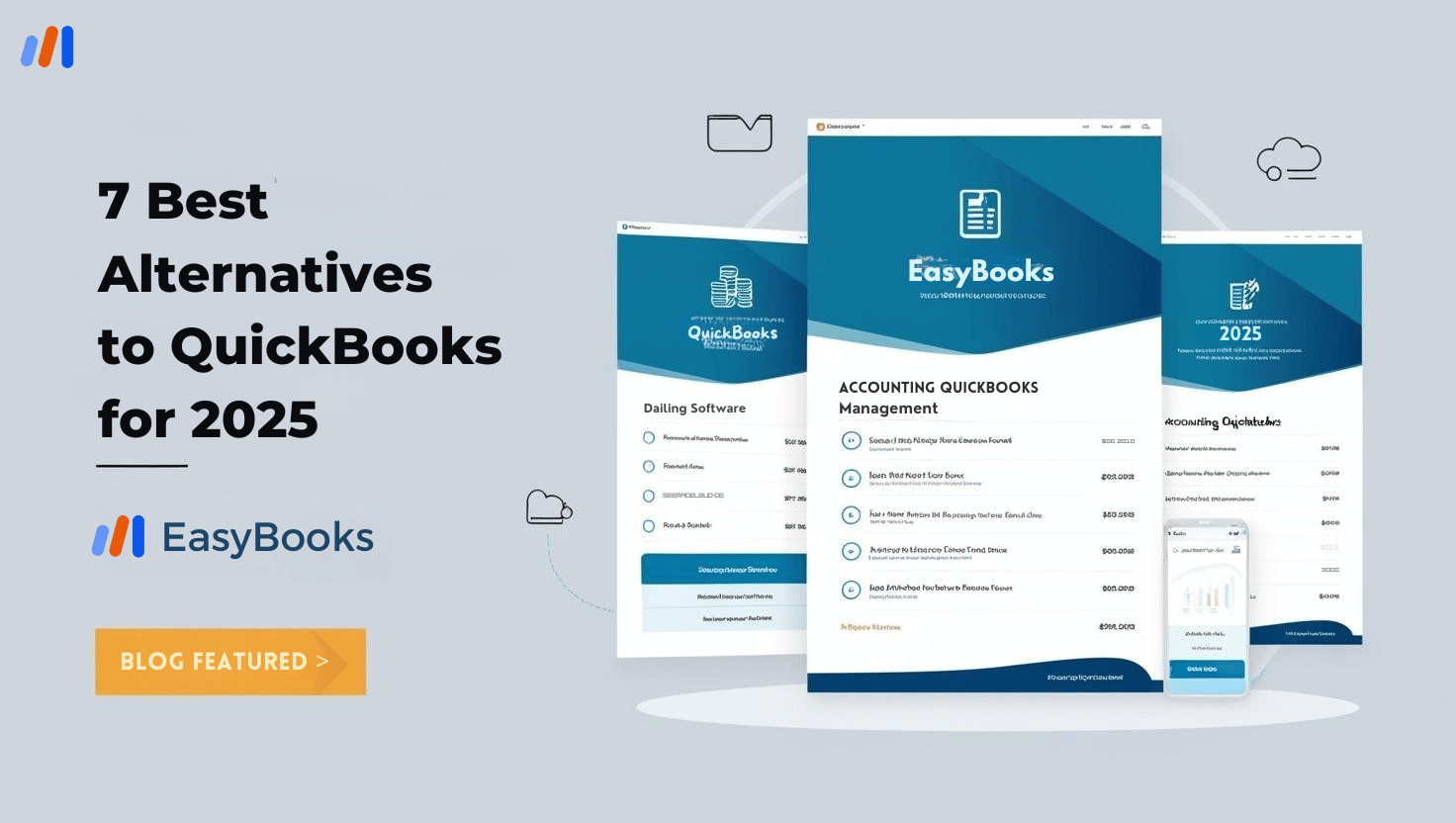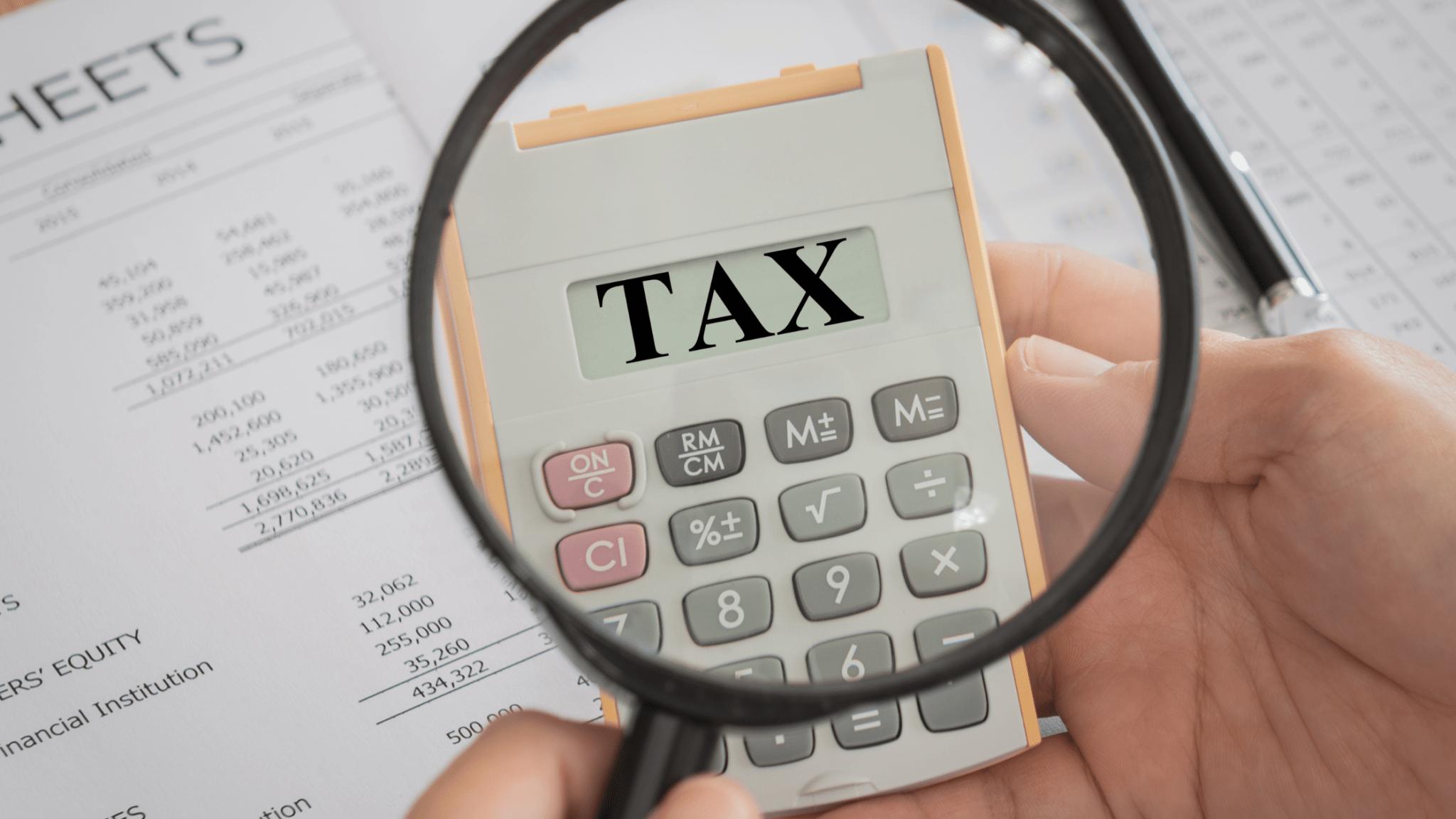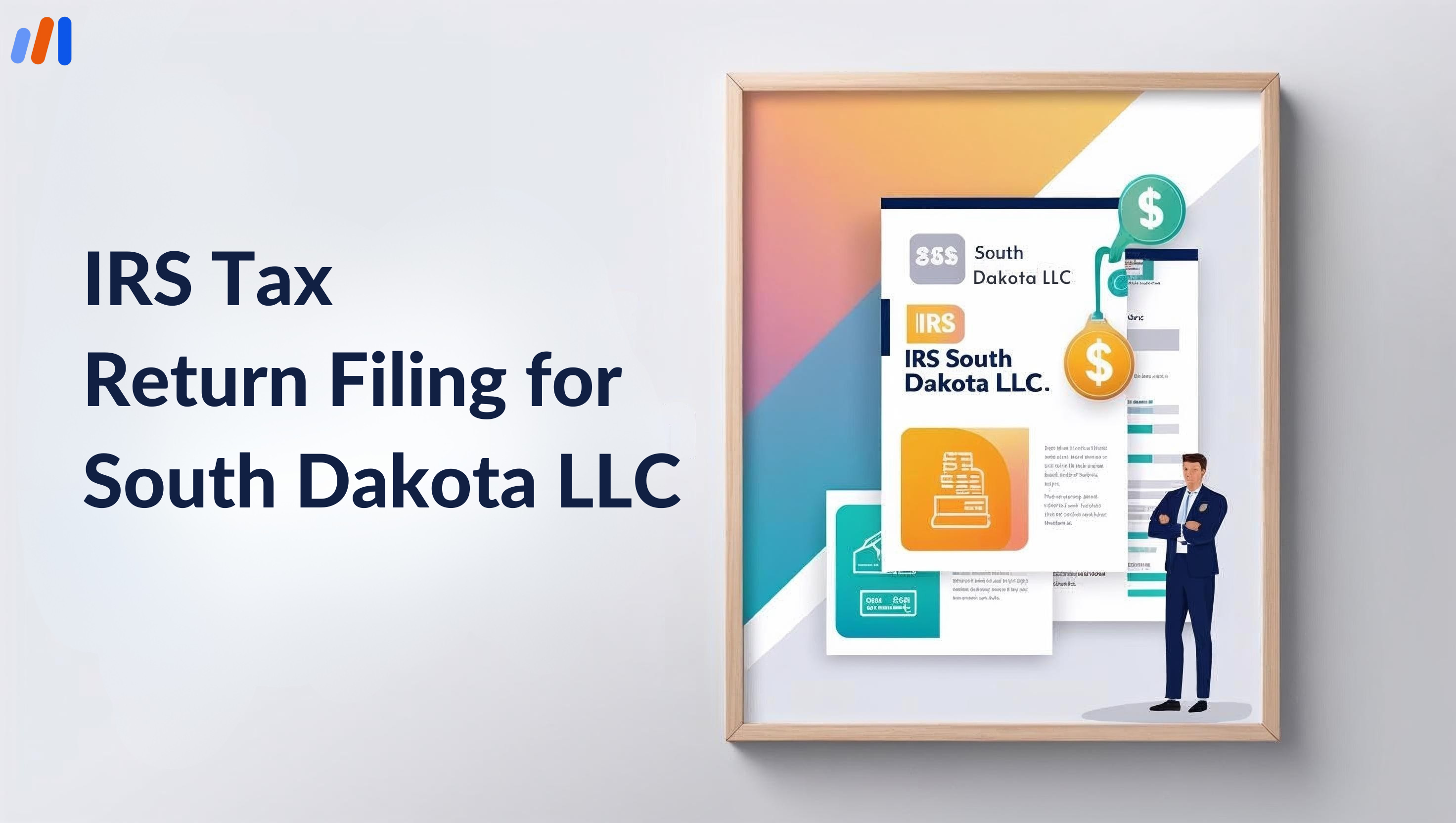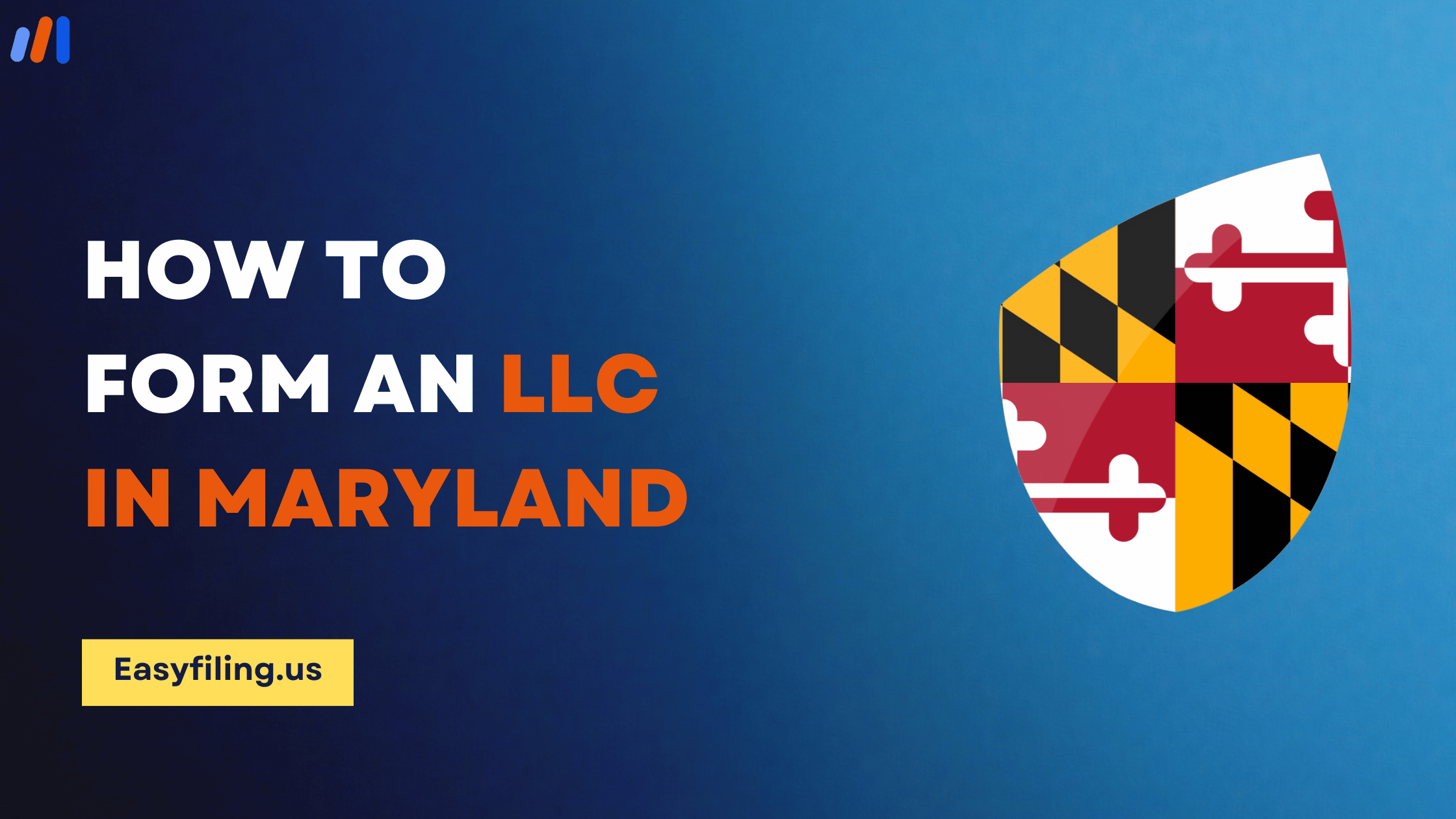In the context of sales tax, a resale certificate is particularly useful because it allows businesses to buy goods without paying tax, provided the goods are meant to be resold later.
We have developed this guide to give you an in-depth understanding of resale tax certificates, their objectives, how they can be utilized, their advantages, and the duties they come with.
Knowing how these documents function can help businesses manage excess tax payments and ensure adherence to state laws.
What Is A Resale Certificate?
A resale certificate refers to a specific type of document that a buyer provides to the seller, declaring that the items that are being purchased will be resold.
Use of this certificate allows the buyer to purchase the items and not pay sales tax at the time of purchase. The sales tax will instead be charged when the items are sold to the ultimate customer.
This system safeguards against two different people being taxed for the same thing, plus it guarantees that only the ultimate consumer is forced to pay sales tax.
State tax authorities issue resale certificates, which means there is a possibility of different requirements in different states.
Companies must make sure that their suppliers are not for details such as using the wrong forms. Otherwise, they risk penalties, in addition to having to pay back taxes to the state revenue department.
The Differences Between Resale and Exemption Certificates
Resale and exemption certificates both alleviate tax burdens, but they do so in different ways for different types of transactions:
Resale Certificates: Issued to businesses buying products to resell. The tax will not be charged until the good is sold to the end user. Retailers, wholesalers, and resellers commonly use these certificates to avoid paying sales tax on inventory purchases.
Exemption Certificates: Issued to select tax-exempt organizations, including non-profit entities, government offices, and eligible manufacturers for purchases made for goods and/or services. These certificates enable qualified individuals to purchase items without sales tax with no intention of reselling.
Every business should understand the difference between these certificates, as it directly affects compliance with tax requirements.
Filing out an exemption certificate when a resale certificate was meant to be issued, or vice versa, can result in significant tax liabilities and penalties.
Who Can Use a Resale Certificate?
Holders of a sales and use tax registration are allowed to use a resale certificate when they purchase items that they intend to sell. Such usage includes:
- Retailers acquire supplies from wholesalers for resale to end users.
- Manufacturers purchase items needed for an unfinished product that they will sell.
- Distributors and wholesalers acquire products to supply other businesses.
Always bear in mind, resale certificates should never be used to purchase items for personal use as well as for business purposes, because that is strictly prohibited.
The primary misuse of a resale certificate will always bring consequences such as back taxes and levies alongside penalties from the state’s revenue department.
Every business has the responsibility to make sure that every resale certificate is used for valid transactions and ensure compliance with the law, regulations, and tax policies.
Does Your Business Need A Resale Certificate?
A resale certificate will more likely benefit your business if:
- You buy stocks and inventory for direct resale at physical retail stores or online stores.
- You operate a dropshipping business or an eCommerce store, or a wholesale distribution business.
- You purchase stuff from suppliers or manufacturers who need a resale certificate to sell without tax.
- You sell taxable items and reside in a state with sales tax legislation, along with the necessity to pay the tax during the acquisition of the inventory.
If your business is service-oriented and selling tangible goods is not part of its offering, a resale certificate might not be relevant.
Some service-providing businesses selling dry goods as part of their service (ex, graphic designers providing custom print posters) may need a resale certificate.
It’s usually prudent to confirm with the authority in your state regarding resale permits to ensure your business qualifies for a resale certificate.
How to Obtain and Use a Resale Certificate
Businesses normally have to be registered for sales tax in their state to qualify for a resale certificate. Here’s how to obtain and use one.
1. Register for a Sales Tax Permit: Before applying for a resale certificate, your business first has to apply for a sales tax permit with the Department of Revenue in your state. Without this permit, you cannot collect or pay sales tax legally.
2. Fill Out the Certificate Form: There is a resale certificate form that needs to be filled out for each state a business operates in; the form always needs to be filled out correctly. Most forms will ask for the business name, address, sales tax ID number, and how you are going to use the certificate.
3. Give To The Seller: The form filled out has to be provided to your supplier at the time of purchase. This notifies the seller that the sale is tax-exempt because the goods are intended for resale. They can sell without collecting tax on the goods from the supplier.
4. Keep Appropriate Documents: Both the seller and buyer have to keep a copy of the resale certificate for their records. Businesses could be audited by state tax agencies to ensure that the tax-exempt purchases were used appropriately.
Multistate Resale Certificates
Tax compliance becomes easier with Multi-state Resale Certificates, especially for businesses operating in different geographic locations. Some of these include:
- Streamlined Sales Tax (SST) Agreement: This agreement streamlines matters for participating states by giving them a singular resale certificate that is accepted by other states aiding them with easier business operations crossing state borders.
- Multistate Tax Commission (MTC) Uniform Sales & Use Tax Certificate: This allows businesses to provide a singular document for the resale transactions that take place in multiple states.
For interstate commerce, businesses ought to find out from the tax authorities of each state whether or not they accept multi-state resale certificates or if they need to pre-register separately.
Benefits Of Resale Certificates
Using a resale certificate has its perks, which are listed as follows:
Cost Savings: Increases in profits due to resale purchases not being taxed increase the overall expenditure of the business.
Savings On Compliance: Sales tax obligations, which would cause double taxation and sanctions, are avoided which aids the business in not conforming with its regulations.
Purchases Made Easier: Wholesalers and manufacturers can be bought from without the inclusion of tax making business purchasing easy.
Cash Flow Improvements: As tax obligations are collected towards the end of the sale value, better cash flow management is experienced, allowing for growth reinvestment.
Legal Obligations and Responsibilities
The resale certificate, if misused, can result in suspension, penalty, and fine, along with back payment of taxes. The following responsibilities ought to be fulfilled by the business.
- Proper Use: The resale certificates may only be used for purchases that have no tax levy but are to be resold.
- Document Verification: Keep adequate records that may substantiate tax returns and help defend against an audit performed by the tax authorities.
- Reported Tax Payable: If a resold item is consumed or used for any business or personal activity, tax payable goes into the state and must be declared.
Sellers can put themselves at financial risk if they accept resale services without confirming that due diligence has been exercised.
Accepting these certificates without any good intention (i.e., it is common knowledge that the buyer will not resell the product) exposes the seller to being charged with sales tax that had not been collected.
How EasyFiling Can Help You Obtain a US Resale Certificate
Businesses and companies within the United States wishing to obtain a resale certificate have been aided by EasyFiling from the beginning. We provide:
- Guide for Each State: Counsel from us in verifying where the application for a resale certificate can be best lodged.
- Application Submission with Easy Instructions: Our agents help in correctly filling the required documents, submitting them and also ensuring that all issues are adhered to.
- Constant Help: Counsels the firm in observing the state’s tax constitution and retaining the resale document under the appropriate conditions.
EasyFiling allows courts to focus on growth by effortlessly managing the tax obligations that come with resale certificates.
Conclusion
Certificates of resale ensure products are only taxed once when being sold to the end consumer. They are extremely useful in the sales tax system, and without them, goods go through several taxation phases before reaching the final buyer.
These certificates need to be understood and utilized properly to help businesses stay compliant with associated tax laws. Failing to do so will impose harsh penalties.
Correctly obtaining, using, and maintaining resale certificates leads to businesses streamlining their purchasing processes while avoiding unnecessary tax expenses.
Frequently Asked Questions
1. Do all states require resale certificates?
No, several states do not require resale certificates due to the non-availability of sales tax, therefore, no certificate is needed. However, companies that function in multiple states should be well aware of the laws around taxation in each state.
2. Could I redeem a resale certificate for an online purchase?
Yes, several online suppliers and wholesalers provide resale certificate redemption features. In most cases, a copy must be submitted before purchasing a tax-free item. Some online marketplaces may have further restrictions.
3. How long is a resale certificate valid?
The validity period varies depending on the state, but similar to many other official documents, most resale certificates require periodic updates to ensure compliance is up to date.
File Your LLC Today
25$ off with a coupon
Lock in EasyFiling's transparent rates and get lifetime compliance support at no extra cost.
Get Started Now